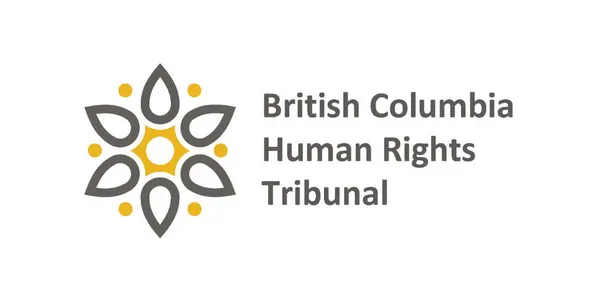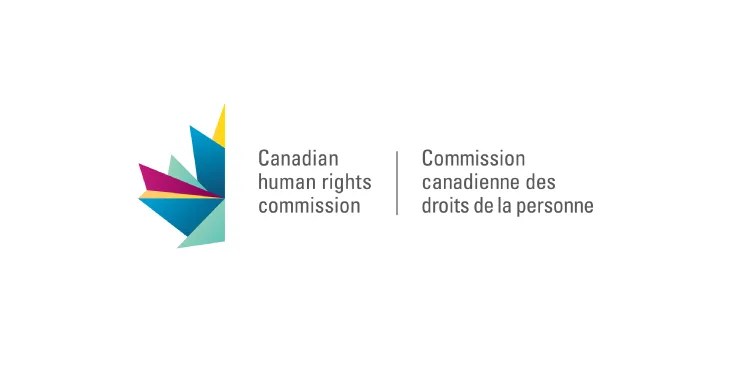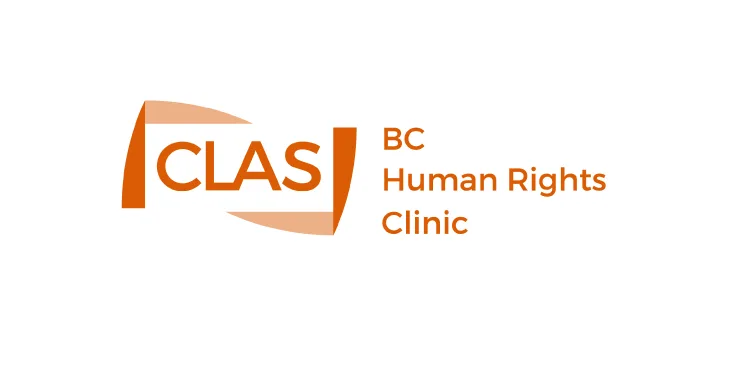
In making a human rights complaint, can I ask to get what I was denied (such as a promotion at work)?
There are different ways to deal with discrimination. Sometimes an apology is enough to patch things up. Maybe changing a policy or practice will make things right. Another option is to bring a formal human rights complaint. Here, we walk you through the steps involved in making a complaint.
What you should know
There are two main human rights laws that help protect people from discrimination.
The BC Human Rights Code covers most instances of discrimination in the province.
But the Canadian Human Rights Act, a federal law, applies in some situations. For example, it applies if you’re dealing with the federal government or a company regulated by the federal government (like an airline or a cellphone provider).
Here is guidance on which human rights law applies, depending on the situation.
This page deals with the process under BC law
The information below focuses on making a human rights complaint under BC law. The Canadian Human Rights Commission handles complaints under federal human rights law. Their website explains how to make a complaint under federal law.
“At first, I was reluctant to make a human rights complaint. I didn't want to relive the trauma of what had happened. I worried I wouldn't be taken seriously, given my experiences as a racialized person. I decided to reach out to a local agency for help. I’m so glad I did. They helped me draft my complaint, and boosted my confidence in the process.”
– L.T., Coquitlam, BC

Discrimination is when someone is treated badly or unfairly because of certain parts of their identity, such as race or sex. The law calls these protected characteristics.
Under BC’s Human Rights Code, the protected characteristics include:
your race, colour, ancestry, or where you’re from
your Indigenous identity
your sex, sexual orientation, or gender identity or expression
your age
any physical or mental disability
your marital status
your family status (for example, if you have kids)
your religion
BC law protects you from discrimination in four main areas of everyday life: work, housing, accessing a service (like restaurants, gyms, hospitals, and schools), and publications (like an article or flyer). For a closer look at what can amount to discrimination, see our discrimination primer.
If you think you’ve been discriminated against under BC law, and you want to do something about it, one of your options is to make a complaint to the BC Human Rights Tribunal. We walk you through the steps below.
Under BC law, there’s a one-year time limit to file a complaint with the BC Human Rights Tribunal.
If the conduct you’re complaining about happened in the year before you filed, you’ve met the deadline. For example, say you experience an incident of discrimination on June 4, 2022. If you file a complaint on or before June 4, 2023, you’ve met the deadline.
If there’s a long-term pattern of discrimination
Sometimes, an incident may be part of a long-term pattern of discrimination. The law calls this a continuing contravention. For example, say you experience an incident of discrimination on July 6, 2022. Similar or related conduct happened in April and October of 2021. As long as you file within one year of the last incident, you’ve met the deadline. In this example, assuming there were no further incidents of discrimination, you would have until July 6, 2023 to file.
The time limit can be extended in limited circumstances
If you file your complaint after the time limit expires, the tribunal may still accept it if two conditions are met. You need to show that:
accepting your complaint is in the public interest, and
no one would be substantially harmed by the delay.
See the tribunal’s website for more on the time limit to file a complaint.
You might be afraid that you’ll face backlash for filing a complaint. Especially if your complaint is against someone in a position of power, like an employer or landlord.
When you file a human rights complaint, the law helps protect you from retaliation. It says no one can treat you poorly because you:
make (or might make) a complaint
are named (or might be named) in a complaint
give evidence or help (or might do so) in a complaint
take part (or might take part) in an inquiry
What retaliation might look like
What retaliation looks like depends on the context. Here are some examples:
your landlord evicts you because you make a human rights complaint against them
your manager suspends you because they think you intend to give evidence against them in a human rights hearing
the head of a rec sports league kicks you out of the league because you’re named in a human rights complaint
To show retaliation
To establish retaliation, you need to show three things:
You were treated badly. Examples include being fired, expelled, intimidated, or penalized, or being denied a benefit or a right.
The person you accuse of retaliation knew about your involvement in a human rights complaint (or potential involvement).
The bad treatment is because of your involvement in the complaint.
The tribunal has more on retaliation.
If you prove you’ve been discriminated against, the BC Human Rights Tribunal can make an order to compensate you. They can also order other remedies. For example, they can order the person who discriminated to stop the discrimination and not do it again.
Compensation for injury to dignity
One of the remedies you can ask for is a payment for the harm you suffered. The law calls this compensation for injury to dignity, feelings, and self-respect.
The tribunal considers several factors in deciding on the amount to award:
the nature of the discrimination (how bad it was and how long it went on for)
the impact the discrimination had on you
your level of vulnerability (for example, due to your age or life circumstances)
The tribunal will also look at how much compensation was ordered in similar cases.
At the modest end of the spectrum are cases where the nature and impact of the discrimination are less serious. Here’s an example where the complainants were awarded $1,000 each for a racial comment made by a café owner in refusing to serve them any longer.
At the other end of the spectrum are cases involving a highly vulnerable complainant where the impact of the discrimination is severe. Here’s an example where the complainant was awarded $35,000 for a strata’s failure to accommodate her physical disability. The complainant was essentially a prisoner in her own home for years.
The tribunal has more on compensation for injury to dignity.
Other remedies you can ask for
If you prove you’ve been discriminated against, the tribunal can award other remedies. These include:
ordering the person who discriminated against you to stop the discrimination and not do it again
ordering the person who discriminated to take action or adopt a program to fix the discrimination
ordering that you get what you were denied by the discrimination (for example, that you get your job back)
awarding you any wages or work benefits you lost
The BC Human Rights Clinic has more on the remedies available.
Steps to make the complaint
First, it’s a good idea to get your thoughts together. Try to identify exactly what the problem is. If it’s not clear, try writing it down. Summarize the problem in a short paragraph or a few bullet points. Make sure to capture:
what happened
when it happened
who was responsible
who else is involved (for example, who can back up your story)
what you’ve lost or how you’ve been affected
Also, think about what you want. Often, it’s easy to assume that a money award will make you feel “whole.” But maybe an order for the discrimination to stop is what you need. Or maybe an apology and a promise from the other person to never do it again would be enough.
Once you have a solid grasp of what the problem is and what you’re after, you’ll be in a better position to move forward.
To show you were discriminated against, you need to show three elements:
You have a personal characteristic protected from discrimination.
You were treated in a way that had a negative impact on you.
The protected characteristic was a factor in the way you were treated. (The protected characteristic doesn’t need to be the only or most important factor. It just needs to be a partial factor.)
It’s enough if you show the facts support a “reasonable inference” of discrimination. For example, if a hotel manager cancels your reservation after learning you follow a certain religion, this can support an inference that your religion was a factor in the decision.
Consider getting legal advice
At this point, it can be very helpful to speak to a legal professional. They can help explain your rights and your options. The BC Human Rights Clinic offers a range of free legal services, including summary advice. (If you are Indigenous, you can ask to speak directly to an Indigenous legal advocate.) The Lawyer Referral Service can help connect you with a lawyer for a free 15-minute consult. For more options, see below under who can help.
In BC, a discrimination claim is made to the BC Human Rights Tribunal. You must fill out and submit a complaint form. Select one that applies to your situation. You can fill the form out online, or print out a paper copy.
There are more options available to you if you are Indigenous
You have the option to self-identify as Indigenous on the complaint form. The tribunal will contact you and explain the process. You can talk to them about the ways you’d like to deal with the complaint, including any protocols that are important to you. This could include smudging or including Elders at the hearing.
If you’d like help with your complaint, you can contact the Indigenous Community Legal Clinic. You can also get free help from the BC Human Rights Clinic, where you can request to speak to an Indigenous legal advocate.
You have one year from the time the conduct occurred to file a complaint. In very limited circumstances, the time limit may be extended (see above, under what you should know).
The tribunal will review your complaint and decide whether to accept or reject it. The tribunal may also defer your complaint if it could be dealt with in another way — for example, through a grievance your union has filed on your behalf.
Get help with filing a complaint
The Human Rights Clinic may be able to help you file a complaint with the tribunal. The clinic may also be able to assist you at a hearing.
Once you’ve submitted your complaint, you can try to reach a settlement. This involves you and the other party agreeing on how to solve the problem. A settlement ends the complaint process. Here are tips on how to prepare for settlement talks. There are sample settlement agreements you can use.
The tribunal’s settlement process
Settlement services offered by the tribunal are typically much faster than going to a hearing, and involve fewer steps. They also give you more control over the outcome.
The tribunal offers settlement services as well. You have the option of attending a settlement meeting (or mediation). You and the other party attend, along with a tribunal mediator who helps you come to an agreement. The meeting may be in person or by phone.
If you’re able to reach an agreement, your complaint is withdrawn. If you aren’t able to agree, you can move to the next step.
Additional options if you're Indigenous
If you are Indigenous, you can tell the tribunal that you want:
a traditional ceremony before or after the mediation
an Indigenous mediator
an Indigenous dispute resolution approach
If you don’t settle the complaint with the other party, the tribunal will schedule a hearing. A hearing involves a lot of preparation. You’ll need to:
prepare your story
make a list of your witnesses and prepare them
prepare your documents
decide if you need expert evidence
The tribunal’s website offers guidance on preparing for a hearing.
As part of preparing, you have to exchange certain documents with the other party. You have to disclose all of the documents relevant to your complaint. The other party will receive a copy of these documents. They’ll also give you the documents they have that are relevant.
Attend a hearing beforehand
If your matter goes to a hearing, consider watching one beforehand to help you prepare. Hearings are open to the public. Check the hearing schedule to find one you can attend. Before you go, call the tribunal to make sure the hearing hasn’t been settled.
At the hearing, you’ll have to prove your case. You and the other party will present evidence to support your position. The tribunal explains what happens at a hearing.
If you’re successful, the tribunal will order a solution (also called a remedy). The other party will be ordered to stop discriminating. They may be told to give you something you were denied — like the chance to compete for a job without discrimination. The tribunal may order them to pay you compensation, as described above under what you should know.
If you aren’t successful, your complaint will be dismissed. In rare circumstances, you can ask the tribunal to reconsider its decision.
Common questions
If you prove you’ve been discriminated against, the BC Human Rights Tribunal can order the other party to compensate you. The compensation can be to make up for the harm you suffered — as much as money can. This is called compensation for injury to dignity, feelings, and self-respect. As well, the tribunal can order that you be reimbursed for expenses you incurred or wages or benefits you were denied.
For details, see above under what you should know.
No, the complaint process before the BC Human Rights Tribunal is free.
No, you don’t need the permission of the BC Human Rights Tribunal to file a complaint.
Yes. Certain proceedings, like a labour arbitration, can resolve human rights complaints. But an employment standards complaint can’t. That means filing an employment standards complaint doesn’t affect your right to file a complaint with the BC Human Rights Tribunal.
Who can help
The BC Human Rights Tribunal lists organizations that can help if you feel you’ve been discriminated against. Below are some of the key ones.

BC Human Rights Tribunal
Receives and resolves discrimination complaints under BC law.

Canadian Human Rights Commission
Deals with discrimination complaints under federal human rights law.

BC Human Rights Clinic
Provides free assistance and representation to those who qualify for help with a discrimination complaint under BC law.

Access Pro Bono's Legal Advice Clinics
Volunteer lawyers provide 30 minutes of free legal advice to people with low or modest income.

Access Pro Bono’s Everyone Legal Clinic
Clinicians provide affordable fixed-fee services on a range of everyday legal problems.

BC Legal Referral Service
Helps you connect with a lawyer, notary or paralegal for a free 15- to 30-minute consult to see if you want to hire them.

BC Legal Directory
Search for a lawyer by community, area of law, or language spoken. From the Canadian Bar Association, BC Branch.

